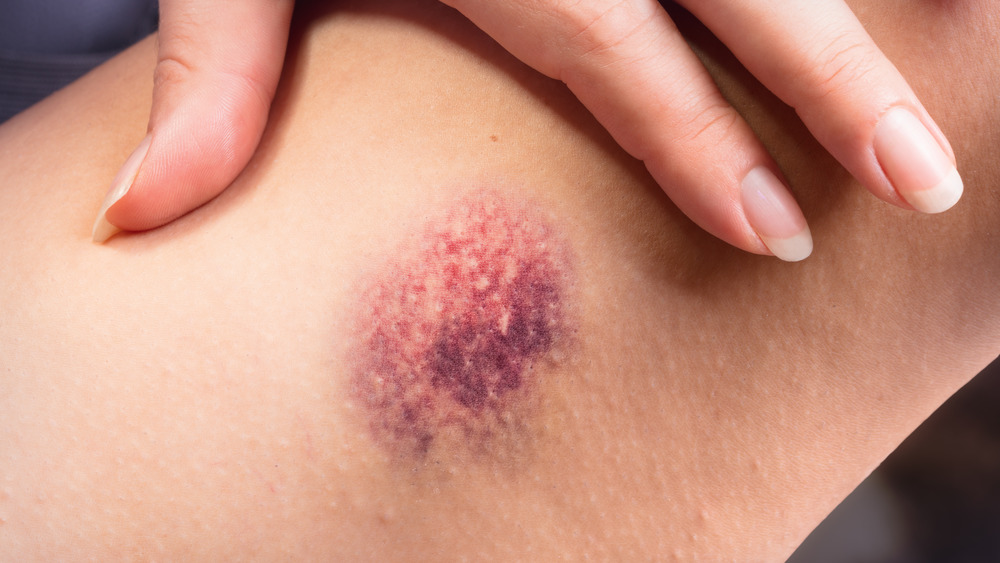If You Bruise Easily, This Could Be Why
We've all had the jarring experience of finding an ugly bluish-purple bruise somewhere on our bodies, and then racking our brains to try and remember what caused it. Sometimes it's obvious (why must coffee tables be shin-height?), but other times we might not have a clue as to how it got there. For most people, the occasional bruise is an occasional nuisance that clears up in a week or two. But for some, bruising seems to happen more easily and often. In that case, what gives?
For everyone, bruises result from broken blood vessels. Cory Fisher, DO, family medicine physician at the Cleveland Clinic, explains, "A bruise is a reflection of minor injury to the blood vessels under the surface of the skin. If these vessels are damaged, a small amount of blood can leak out, giving the classic blue, black, or purple discoloration" (via Prevention).
But there are certain conditions that can lead to easier bruising. Age, for one. As we age, our skin thins and the fatty deposits under the skin are reduced, leaving the small blood vessels less cushioned and protected against injuries. Also, women tend to bruise more easily than men. Men have thicker skin and more collagen than women, which means more protection from the injury of their blood vessels.
If you bruise easily, it may be time to see a doctor
Certain blood-clotting disorders, like hemophilia and von Willebrand disease, have been known to lead to bruising. A tendency to bruise could also come from taking medications and even herbal remedies, like corticosteroids, SSRIs, or blood-thinning drugs.
Being low in vitamin C, which is essential for healing and for blood vessel health, or vitamin K, which is important for proper blood clotting (via WebMD), can also lead to easier bruising.
And sometimes, thanks to genetics, the tendency to bruise easily is just something that runs in families (via Today).
While most bruises will heal on their own in a week or two, if we repeatedly can't identify the cause of bruises, or if the bruise seems unusually large in relation to the injury, or is not getting better, it's a good idea to see your doctor. Hematologist Dr. Dana Angelini told Cleveland Clinic, "It's common to bump into things, not remember, and see small bruises on your legs or arms. However, unprovoked bruises on your torso, back, or face are unusual. And that's a reason to get them checked out."


